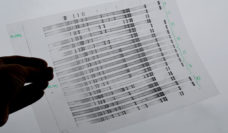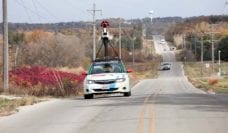We live in a data-driven world. Yet, using data effectively can be resource-intensive. Many groups doing work critical to public health risk being left behind as a result.
Back in 2011, Jake Porway, then a young researcher at the New York Times R&D Lab, wrote a post on his personal blog calling out this data expertise divide. He invited fellow data scientists to join him for a “Hack Day” that would match data experts looking to do something meaningful with nonprofits in need of data services. The idea took off, and a new nonprofit, DataKind, soon followed.
Today DataKind has chapters in San Francisco, Washington DC, India, Singapore, and the United Kingdom. Their aim is to enable mission-driven organizations to leverage the same algorithms and analytics that companies use to boost profits to improve the world. DataKind convenes volunteer data scientists to work with nonprofits on initial data analysis, exploration, and prototyping or longer-term data-driven projects. To date, DataKind has provided pro-bono data expertise to agencies tackling multiple social sector challenges, ranging from poverty, homelessness, and health inequities to corruption and human rights.
We live in a data-driven world. Yet, using data effectively can be resource-intensive. Many groups doing work critical to public health risk being left behind as a result.
These efforts bridge the gap between data science and nonprofits in the near-term. But a critical goal, said Giselle Cory, Executive Director of the DataKind UK Chapter, is to also enable nonprofits to begin to use data independently.
To that end, explained Cory, DataKind takes deliberate steps to ensure that data-driven approaches will live on within organizations. For example, a primary aim of all engagements is “up-skilling” nonprofit staff members, whom DataKind teams equip to use, explain, and modify the data tools they help them create. DataKind also builds nonprofit senior-level support for data science through its two-day Data Dives, in which data scientists help nonprofit teams use data to gain new insights into their programs. DataKind works closely with nonprofits before these events to scope out the questions they’d like to answer and carefully prepare their data. As a result, teams leave Data Dives with concrete outcomes that clearly show their senior leaders the value that data expertise can bring to their agency.
“Our work with DataKind made us much more aware of our need to have data people involved,” confirmed Ellie Coteau, who leads The Welcome Centre (TWC), one of the largest food banks in the north of England.
TWC first encountered DataKind in 2016 when they participated in a Data Dive. The agency had moved from index card files for client records to an electronic database a few years previously. Data analysts at the event helped TWC leverage that database to categorize clients based on their demand for services. A fifteen-month project with DataKind UK came next. The result was a predictive model for quickly identifying clients who will need additional social services.
The model is still in its trial phase. Yet, TWC’s experience with DataKind has already changed the way it does business.
While TWC is too small for a staff data person, said Coteau, it’s now a priority to always have data expertise on the Board. The food bank is also recruiting staff and volunteers to work with high-demand clients, since data shows that additional capacity is required to meet their needs.
With 250 projects and 30,000 volunteers globally, DataKind is poised to keep expanding, as well.
In January 2019, DataKind announced a $20 million investment from the new Data Science for Social Impact collaborative financed by The Rockefeller Foundation and the MasterCard Impact Fund. Jake Porway, now DataKind’s Executive Director, highlighted the community health sector as a key priority for this investment.














